Tuesday Feb 24, 2026
Tuesday Feb 24, 2026
Monday, 31 December 2018 01:33 - - {{hitsCtrl.values.hits}}
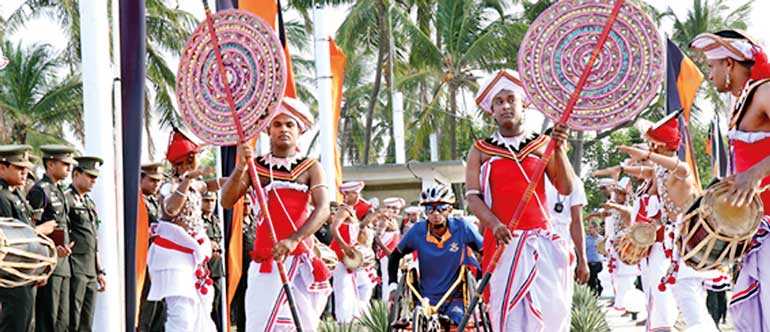
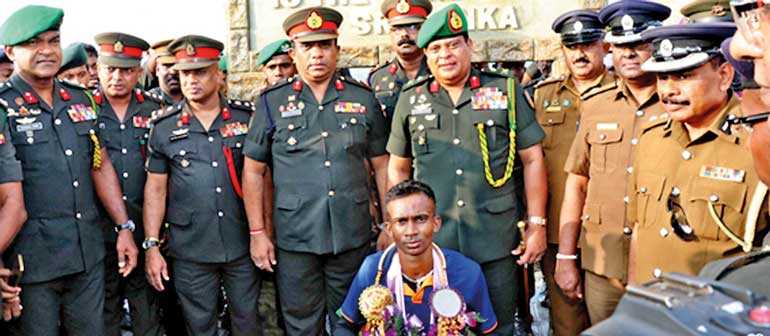
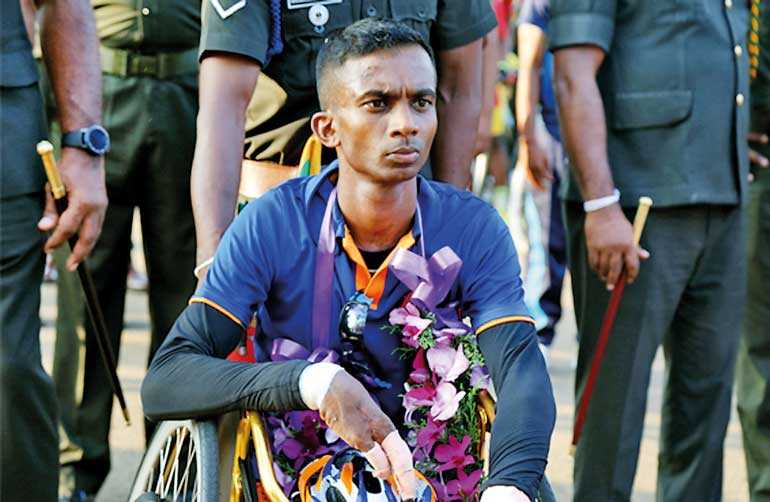
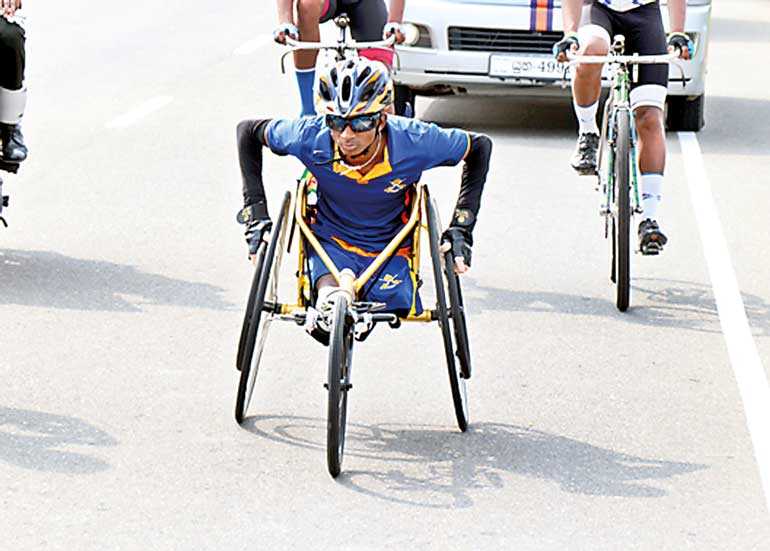
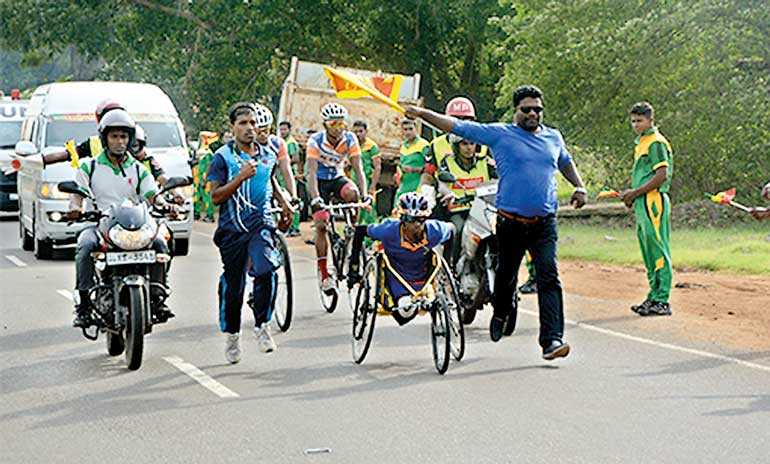
By Shanika Sriyananda
For him, disability is not an obstacle that can stop his journey. Motivated and equipped with hard-core training, he recently kept a record as the first differently-abled person who undertook and completed a wheelchair journey from south to north of the country.
Covering 581 km, he carried the message of ‘peace and reconciliation’. “My intention was to give a message that disability is not a cause to be in isolation and also to promote peace among all communities from south to north,” the soldier, who lost three fingers of his right hand and both limbs in a mine trapping, said.
Corporal Gamunu Karunaratne, 29, who joined the Sri Lanka Army (SLA) in 2007 and was first deployed in the military operation in Madu, had fought on the frontlines until he was severely injured in Puthukkudiyiruppu in Mullaitivu, six days before end of the war on 19 May 2009.
“There was heavy fighting in the final days of the war. We were progressing forward through the thick jungle and suddenly I was thrown away in a mine trapping blast. I only felt the darkness around me. I searched for my weapon but my body was numb,” Karunaratne recalled.
He and 12 others had been injured and five had died in that blast, which left him unconscious for over one month, with two shrapnel in his brain and another in his chest.
Staying over a year in the military hospital, he was sent to Ranaviru Sevana, Ragama, where he learnt the ABCs of walking with one artificial limb and crutches. The wheelchair-bound Karunaratne was sent home after he was able to walk with crutches. But walking alone on the uneven gravel road in his village – Poojapitiya in Kandy – became a struggle and a challenge for him.
“My friends in the village helped me to get used to walking with crutches on slopes. A few months ago when I was at home I recalled the suggestion of Corporal B.P. Maduranga of the Medical Corp in Kurunegala Abimansala where I live. He asked me whether I could ride the wheelchair from the south to the north. I laughed at him asking how a differently-abled person like me could complete such a long journey,” said Karunaratne, who has won medals, including Gold medals, at SLA’s Para Games.
However, the day he walked alone with crutches on the 200-metre-long stretch up a hill to his brother’s house, he was determined to take up the challenge and ride his wheelchair from south to north.
He got blessings and full support for further training from the Commandant of Abimansala in Kurunegala Lt. Col. Sujeewa Perera. Karunaratne, who was confident of handling the wheelchair well, also got the final nod from SLA Commander Lt. Gen. Mahesh Senanayake, who provided two Chinese-made wheelchairs.
It was on 3 December that he commenced the wheelchair journey at the 166 Mile Post from Dondra. He rode the wheelchair at a speed of 14 km per hour each day, which was divided into two sessions – from 8:30 a.m. to 10 a.m. and from 1 p.m. to 5:30 p.m.
“I couldn’t believe the welcome and blessings that I received from the people along the streets and towns. Soldiers in all the Army camps supported me and some walked and ran with me. When I came to Vavuniya town, I was excited as it was the day that I was to step into the north for the first time since the end of the war. It made me to recall the days when we fought against the LTTE terrorists to bring peace,” Karunaratne recalled. He was amazed with the warm welcome that he received from the people in the north. “Young mothers took pictures of me while I was holding their little ones. They blessed me by chanting some mantras in Tamil. Some held my hands for a while. I felt if I knew Tamil, I could talk to them more,” Karunaratne said, emphasising on the importance of learning each one’s languages to understand each other better.
He concluded his journey within eight days, including one day of resting at Sokkotai, Point Pedro.
Married and with a three-year-old son, Karunaratne has bigger plans to ride his wheelchair to contribute his might to reconcile all ethnic groups in the country.
“I was very happy as I was able to show that disability can’t stop anyone from reaching their goals in life when they are determined and committed to the cause,” he said. “I am also proud that being a living example of a deadly war, I was able to give the message that war is not the solution to conflicts and the soldiers fought only with LTTE terrorists but not with Tamils. We all – Sinhalese, Tamils and Muslims – want to live together in a country free of war and violence.”